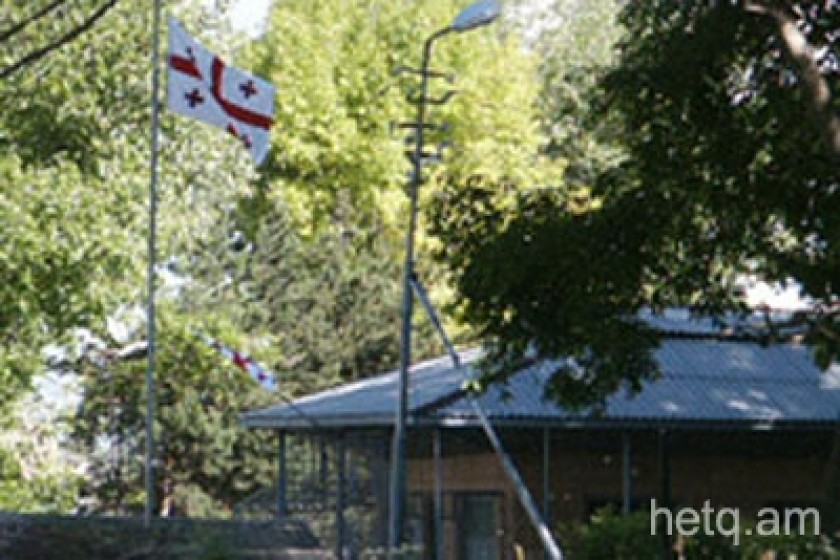
Have you seen the Georgian flag?
On the morning of June 26 th all the residents of Akhalkalaki were asking each other the same question.
“Have you seen the Georgian Flag?” By that morning the Georgian flag was already waving near the entrance of the 62 nd Russian military base located in Akhalkalaki, and at 7 AM the Georgian anthem could be heard under it.
“For years the Russian flag was waving there. To our eyes the Russian flag was so usual and familiar that the change was very manifest. Those who hadn't seen it yet, were going out of their ways to see it,” told us Akhalkalaki resident Varduhi.
On June 27Georgia's Deputy Defense Minister Levan Nikoleishvili and the commander of the Group of Russian Forces in Transcaucasia Mayor-General Andrei Popov signed an Act of Handover and Acceptance regarding the Akhalkalaki military base's handover toGeorgia. As stated by Nikoleishvili, all the military installations of the base have been transferred to Georgian military forces.
The deadline for withdrawing of the Russian military base was July 1 st , while the process of handover and acceptance was to begin on June 25th.
On June 25th Georgian servicemen arrived at the Akhalkalaki first military neighborhood. And from that day the neighborhood, the subordinate facilities and control of entrances were transferred to the Georgian armed forces. The Russian division commander's staff will abandon the military neighborhood on the last day of the deadline.
In the town everyone knew that on the night of June 25 th fifty Georgian servicemen arrived in Akhalkalaki. We were unable to properly verify this information from their commanders, since the Georgian soldiers denied us entry into the headquarters. We tried to converse with the servicemen guarding the entrance but the answer to all of our questions was the same: “For the time being we don't have permission to say anything.” As to why the Georgian soldiers arrived at night, one soldiers replied that it was necessary. During our time near the entrance, three “KAMAZ” trucks were transporting soldiers into the military base. The military relocation into the Akhalkalaki military neighborhood is continuing.
Pedestrian entry into the neighborhood is still allowed, but the entry of vehicles is under strict control. One of the residents of the military neighborhood told us: “I always entered with Russian authorization documents and had no problems, but just recently they didn't let me enter and told me that with Russian documents I have to stop my car outside and pass on foot.”
The residents of the military neighborhood are both confused and nervous. The events taking place are giving way to various conversations and rumors about the future of their apartments. “We are all waiting to see what will happen. Some say that they will displace us so their soldiers are moved into our houses, others say that Georgian citizens can continue to live here while Russian citizens, especially those that were provided with apartments, will be moved out,” says Anahit, a resident of the neighborhood.
“We don't know whom they will bring; they say that a special detachment will be brought in, so we are all afraid. Will we be comfortable with the Georgians? Will we get along with them? For many years already we have lived with the Russians. We have always lived peacefully alongside them and have not had any discord with them,” continues another resident Shogher.
One June 30th the electricity supply of the military neighborhood was cut off. Those residents who want to have electricity must pay 20 lari (about $12) in cash to have their power turned on and linked with a personal bill.
The 62 nd Russian military base operated a secondary school, a kindergarten, a music school, a military hospital, an officers' school, a clubhouse and other important facilities. These facilities, like the military base itself, employed many local Armenians. At this time all of those facilities are closed. Naturally the workplaces are also closed. For example, 300 students have been transferred from the military base's Russian school to the Vladimir Mayakovski Russian school in Akhalkalaki, while the future of the teaching staff is yet unclear. They have remained without work.
Translated by Ruben Izmailyan
 Videos
Videos Photos
Photos
Write a comment